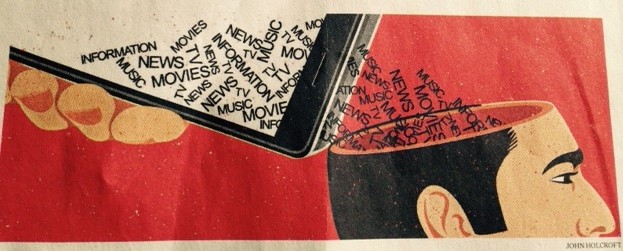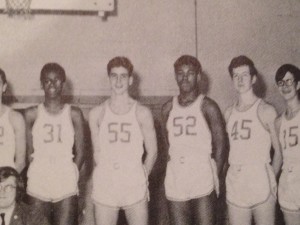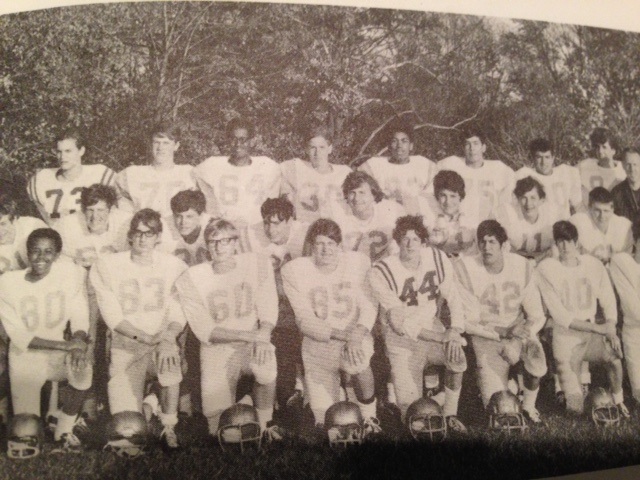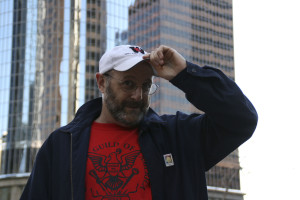to
=
Folk Journalist Sample:
I interviewed elementary school students about love http://www.scpr.org/programs/offramp/2012/02/08/22458/5th-graders-know-what-love-is-tell-commentator-han/
Folk Journalist Sample:
I interviewed elementary school students about love http://www.scpr.org/programs/offramp/2012/02/08/22458/5th-graders-know-what-love-is-tell-commentator-han/

Gone are the days when you had to ask a perfect stranger to take your photograph.
Advertisement in Lufthansa Airlines magazine
Gosh, wouldn’t want to actually speak to a foreigner would one? Avoid talking to them altogether, right?
Yoiks!
But if you seek to deepen your experience and learn more about what it’s like to live in a part of this planet you don’t know, try these:
(Know this: folks may even invite you home to really show and tell the answers!)
“What is your greeting and goodbye here? I would love to try saying it.”
“If we only had one day here where would you take me?”
“If you only had one day in my town, what would you like to see?”
“What do you dislike about your countrymen and women?”
“What do you dislike most about Americans?”
“What is the word for funny bone here? (I’m collecting them from every language and culture I contact.)
“What’s a big difference between here and American culture?”
“What do you think we don’t we get about you?”
So who asks questions like this?
Folk journalists, that’s who. The key? Model the practitioners of extreme curiosity who play upon their fellow Americans. Steve Allen and Mal Sharpe, originally radio guys with a microphone who moved to television, were known on their broadcast logs as “MOS” – Man on the Street. And if you have no gift for the small talk, you’re not alone. Still, everyone is trying, dying for conversation. Oddball worldviews (see Steve Allen, Mal Sharpe*) can not only draw everyone into conversation — hey they can even improve your outlook on life.
FIVE WITTY BANTERINGS: Things To Say When You’ve Got Nothing
“I read that elephants carry on various kinds of conversation.” This practice is known as referring to something you saw on PBS. In other words, a surefire method of directing your convo to television. Here you and your partner can get lost for hours. “They dance, too! They showed elephants doing an end zone dance to celebrate a group activity. Amazing huh?”
“I got a new scammer – I mean scanner.” This practice is known as: saying things that you heard wrong and then correcting yourself once you’ve gotten attention. Another example of this is: “Do you smell a smunk?”or “Man, you got a one-hack mind.”
If reaching out to bother someone seems like too much work and you really want to chillax like a pal, try sprinkling yon saucy sentences with the likes of: “It’s so funny, the things you remember.”(FILL IN OWN MEMORY HERE)
“’Tell the truth. But tell it slant.’ Dorothy Parker said that.” (Yes, it is cool to have a Dorothy Parker quote at the ready.)
* LINK to Man on the Street’s Mal Sharpe: http://www.coyleandsharpe.com
Talking about how tired and stressed you are from work is reprehensible and not an acceptable form of conversation.
Mindy Kaling
To have at your disposal what the best conversationalists have: a wealth of experience to draw on.
Sherry Turkle, ALONE TOGETHER: Why We Expect More from Technology and Less From Each Other
To be Open.
Unafraid.
Creative.
Some people talk the talk. But they do not walk the walk.
As a folk journalist you must walk the talk. Whenever possible.
In other words, your words must move the conversation somewhere.
Take the story further. Farther even. With questions, retorts and ripostes disrupting daily dullness.
Ask someone, “Do you know what I’ve been thinking about all week?” They generally may respond: “No, what?” Because, let’s face it, they have no way of knowing what you’ve been thinking. Unless you are reading this, “In the year 2525, if man can survive, then they may find,” that we can read each other’s minds.*
* A song by Zaeger & Evans I had on a 45 in 1969.
http://www.lyricsfreak.com/z/zager+and+evans/in+the+year+2525_20647779.html
A better one, that relates to today’s WT theme, is REM’s “Walk Unafraid.”
http://www.songlyrics.com/r-e-m/walk-unafraid-lyrics/
Likewise, if you offer: “How soft your lips look,” you must walk the talk.
Meaning: Take it elsewhere. To them lips, to the chin, or take it on the chin – it doesn’t matter. “Actions speak louder than words” goes the expression. But did you know that actions prompt words, too? Walking, for instance, stimulates the body and mind, fueling conversation.
Folks who live in places like Michael Moore’s, “Upnorthistan” know this especially. It is why we long for spring – you get out and walk around more. We know when you do that you find yourself chatting with a person tripping down the cobblestones with all winter in silence.
Flaneurs tend toward more lollygagging (which can be lethal in winter). Flanerie will often get you everywhere and nowhere. Drolling instead of trolling, on the run off the cuff or on the q.t. They are master multi-taskers. Nurse-slash-diva mensches who may hail from places like Media, PA., but are neither schnorrer nor schlemiel. Are they schlubs because they like to hang around the café society scenes on every other corner? They prefer a table for three, still realizing that in some societies, “people eat in silence as a sign of respect and focus,” as The Art of Civilized Conversation, A guide to Expressing Yourself with Style & Grace, by Margaret Shepherd tells us.
http://link.arapahoelibraries.org/portal/Art-of-civilized-conversation.–The-art-of/e1dzqt6a5rs/
A flaneur may be at once, “the World’s Most Ridiculous Man,” eavesdropping for the hell of it, as primitive as any saunter-gatherer who sniffs the air for stories, and also the hunter who explores, uncovers, and reveals their city before it all goes away.
Back Pocket Banter
What is the longest time you’ve talked to someone at a café?
What is our favorite hangout and why?
When was the last time you mailed a letter? How about a postcard? Okay then, a card that went into an envelope for someone’s birthday or anniversary?
Do you ever listen to yourself and hear what you are actually saying?
Activity
Compared to today’s throwaway conversation, letter writing is a meditative act. Try it.
A trick of the flaneur is to try and eavesdrop on your own conversation. What would you like to be saying right now? What would that conversation sound like for you? (Don’t ask me; only you can make it so.)
In her memoir “Yes Please,” Amy Poehler said she gets funny lines while listening to people deliver monologues on their cell phones. Paul Krassner told a joke in the 1990s about giving cell phones to the homeless so they would not look like they were talking to themselves. Joshua Wolf Shenk writes: “Indeed, thinking itself is a kind of download of dialogue between ourselves and others. And when we listen to creative people describe breakthrough moments that occur when they are alone, they often mention the sensation of having a conversation in their own minds.”*
* http://www.nytimes.com/2014/07/20/opinion/sunday/the-end-of-genius.html
What do you think he meant by this?
Look back on your conversation – what can be learned? Look forward to your next conversation – what can be prepared for, directed into a deeper discussion?
Bonus Activity
Annotate annotate annotate: Print up a recent texting convo you conducted. Send it back to the other person, only this time adding in bold what you think was really meant by each sentence. An annotation dives deeper into what went on between you two while you were saving all that time texting instead of writing letters.
Tips
Slow down. Upon greeting a fellow human, instead of digitally registering at hypersonic speed, greet and note to yourself (or to them) what inner conversation pops to mind: is it their clothes, their gait, their grooming? Like a digital printout outside your hard drive, conversation broken down can lead to discovering much more about each other.
It is very hard to nail down a human being, isn’t it? You get one pegged and realize you’ve peeled just one layer of some sweet onion. When Tom Hayden ran for Governor of California he described himself this way: “I’m Jeffersonian in terms of democracy, Thoreauvian in terms of the environment, and Crazy Horse in terms of social movements.” (And Harold Stassen in terms of elections? Zing! I kid Tom.)
Personally
Garrison Keillor used to write a column called “Mr. Blue” for Salon.com that offered advice to the lovelorn word slinger. It was like sitting with him in a café contemplating jazz. I wrote asking if he thought it was all right to eavesdrop in cafes. He wrote back saying you betcha.
Two books: Sherry Turkle’s: http://alonetogetherbook.com
My friend and flaneur, Leonard Pitt, has a memoir of Paris and Detroit coming out next month called, “My Brain On Fire.”
It is great to hold a conversation, but you should let go of it now and then. Poet Richard Armour
http://articles.latimes.com/1989-03-01/news/mn-582_1_richard-armour
Need to talk? Remember, as Ian Drury wrote: You’re never alone with a schizophrenic.
GREMIO: What! this gentleman will out-talk us all.
PETRUCHIO: Hortensio, to what end are all these words? The Taming of the Shrew
With the NFL playoffs underway this weekend, let’s talk sports!
Women may love to talk, but guys never shut up. Listen to talk radio. Sports talk radio. Or notice while watching a sports telecast: they’re just out to out muscle each other. But wouldn’t it be more entertaining and instructive if instead of just talking to fill dead air, they spoke at a clever level of conversation?
Baseball is the greatest conversation topic ever. Civil War author Bruce Catton
Sure is! The statistical depths and storytelling alone make for endless summers and off-seasons of excellent, lingo-filled confabs. And George Carlin’s comparison of Football and Baseball — “stadium” vs. “park,” “spearing, piling on” vs. “the sacrifice,” “a sustained ground attack” vs. “going home” — is one of the finest examinations of the language we use when discussing sports. Here it is, literally:
http://www.baseball-almanac.com/humor7.shtml

Back in the mid-1970s, every Sunday night in Middletown USA, Bob Glasspiegel hosted a conversational sports show on WESU 88.1 FM. He called it, “Jock Talk.” Think of the Algonquin Roundtable only with sports wits batting it around the bases.
I think this is the appeal of your better podcasts, which reach funny and informative levels of give and take by the practice of sharply-shaped words leading to good interviews = good conversation. [SEE LINKS PAGE FOR SOME PODCASTS]
As part of the WESU’s “Jock Talk” active listenership, I was asked to do color commentary on some basketball broadcasts with the aforementioned announcer Bob Glasspiegel. We were having a conversation on the air about the relative merits of “streaking” naked during halftime (college males randomly ran wild and nude across campuses during a certain dull point in the ‘70s; something left over from the freedoms fought for by the cultural revolutions of the ’60s.). I made some remark and suddenly our play-by-play guy punched me.
Luckily it was radio. But I was so startled, I fearfully refrained from offering any decent conversation the rest of the game. (Or “tilt” as they were called back east where Wesleyan University plays its games) At another game when someone streaked across the b-ball court — okay, my dorm mate, but he was very drunk and it was the ’70s — I had to interview him before and after the event. Not easy, as he was one of those guys, as a coach remarked later, who “wouldn’t say shit if he had a mouthful.” Years later, while doing similar color commentary on NYU broadcasts (“Go Violets!”), I got into a physical fight with the mascot from the opposing team. (A “Judge” from Brandeis, was it?)

Anyway, the above experiences are rendered as this folk journalist’s way of saying: good conversation need not always lead to such results. It’s up to you. You can be the catalyst for everyone else’s creative convos. Perhaps you’ll help today’s podcasts usher in a new golden age of storytelling, who knows?
Back Pocket Banter
Have you ever called a talk show on the radio? How about C-Span on TV?
What did you discuss?
Was it like a real conversation or did you just state your opinion and hang up?
What kind of podcast would you like to be part of?
Activity
Call a talk show or sports show on radio or TV.
Bonus
Michael O’Donohue, one of the original SNL writers, told a story of going to a baseball game with a blind friend and describing the action to him as it progressed inning by inning. Late in the game, “Thwack!” – a fly ball to left field and it is going to be a home run. At that point O’Donohue pulls out a souvenir baseball he brought to the game. While continuing the play-by-play: “It’s a long fly ball to deep left back back back…” he suddenly slams the souvenir ball into the stomach of his blind companion. “Home Run!!!”
“[Mychal] Thompson watches players walk into arenas today with their oversized headphones and wonders if they even bother talking to each other anymore as they did back in his day. Casual conversations aren’t the only thing Thompson misses.” Ben Bolch on the former Laker basketball player, LA Times, December 24 2013
ADD Jock Talk: this video creates dialogue where there was none. Certainly nothing like this!
http://nesn.com/2015/01/nfl-bad-lip-reading-returns-with-hilarious-2015-edition-video/

For conversation, weather is a gift. Ross McCammon in “Works Well With Others”
Now that we’ve got some weather (El Nino slamming southern California), how do we talk about it? Some tips perhaps, from a folk journalist confabbing about this fabulous storm system rolling out of the Pacific seas?
Mark Twain is often cited for, “Everybody talks about the weather but nobody does anything about it.” But this disputes that attribution: http://www.twainquotes.com/Weather.html
I got into one conversation while out looking for a rainbow after a break in the action this afternoon. A UPS delivery man told me after I complained about the weather and its aftermath, “You’ll only see a rainbow when God is talking to you.”
“Well,” I replied, “what about if I see a double rainbow?”
“That’s when God brings along one of his angels.”
* * *
Now, check out this story about a man making El Nino breakfast in an underpass, in a column today by the great LA TIMES writer, Steve Lopez:
http://www.latimes.com/local/california/la-me-lopez-rain-20160106-column.html
As members of the MMMS used to say — ‘NUFF SAID! (MMMS, for those unaffiliated with Stan Lee and his fellow comic book creators, was the “Merry Marvel Marching Society” which included MMMS buttons for kids like me who had subscriptions – ! – to Spidey, X-Men, FF, and DD.)
 That’s my rap/let’s talk soon!
That’s my rap/let’s talk soon!
Link to chat with the author of “Works Well With Others,” Ross McCammon:
http://onpoint.wbur.org/2015/11/04/works-well-with-others-ross-mccammon
When you listen better you think better; when you think better you do better.
Dr. Shana L. Redmond, USC Professor
By the other I don’t mean another device like the one this guy is wailing at.
I’m talking about another person. This is about being curious and listening louder.
As art forms go, listening is little studied, scarcely taught. It is the opposite of passive.
The Art of Conversation A Guided Tour of a Neglected Pleasure by Catherine Blyth
Recognizing the “other” is not as scary as it first appears. But to recognize and actually listen is easier than you might imagine.
“Look at that,” I said to a woman in a modern coffeehouse in San Diego. Written on the wall was, “A yawn is a scream for coffee.”
“Purple is a striking color on you,” I told someone at a Coffee Bean & Tea Leaf on Ventura Boulevard.
Next, I asked a man about his dog.
“What kind of mutt is that?”
No response. I remembered how sensitive people are about their pets.
“I mean mongrel,” I corrected myself. “ Sorry. What kind of mongrel is that?”
“No, that’s okay. He’s a rescue,” came the response, as it usually does.
Are you frustrated that sometimes the only conversation you get to overhear in cafes is, “Text me that,” or “I’ll call you with that.”
This patter is what passes for direct communication? (I know, at least we never hear, “Just fax it over,” anymore.)
And yes, it does save paper. Here’s another paper-saving technique: talk to each other.
In these modern times, conversational coffeehouses are everywhere.
Some of the best are:
* Operated by a church, featuring inspirational music and subsistence level pricing.
* University cafeterias, prices low and conversations loud, involving classes, Profs, arguments over New York bagels versus California bagels.
* Bowling alleys, the sound of crashing pins able to block out everyone else so you can stimulate inner conversation with yourself. Or just listen louder.
* Pizza parlors and other places featuring “groaning boards” – long, shareable tables where gentlemen sit sometimes, talking the morning away. (Fine for eating/eavesdropping; see my upcoming menu/memoir, Table For Three? for more on the subject)
Back Pocket Banter (things to know and ask as folk journalists)
What raised your curiosity today?
What’s the last thing you overheard?
What’s your go-to stimulating drink of choice?
We’re sitting in a coffeehouse. What can I learn from you?
Imagine engaging in a “battle of wits.” What happens?
Bonus
Starved for conversation after moving from NYC to LA, I made arrangements to meet up with two like-minded companeros who would pick a different coffeehouse — joints called Insomnia, Highland Grounds, or Open Latte — and set about holding weekly confabs about a current book or movie. For a couple of three hours, this was called “Nick Night,” because my friend Tip considered his friend Nick a special guest promising stimulating intellectual inquiry.
Nick got married, he and Shannon had a daughter and left Los Angeles to raise her right in Portland. Recently I visited him up there, not far from a branch of Powell’s Bookstore on Belmont, in a joint called Dick’s. There we continued where we left off. Sometimes you have to go a long way for good convo with a pal, or as Allen Ginsberg wrote in his 1955 poem “Howl,” someone, “who drove cross country seventy two hours to find out if I had a vision or you had a vision or he had a vision to find out Eternity.” *
Dr. Shana L. Redmond’s book Anthem: http://nyupress.org/books/9780814770412/
Catherine Blyth’s book: http://www.amazon.com/The-Art-Conversation-Neglected-Pleasure/dp/1592404979
Social media seems so easy; the whole point of its pleasure is its sense of casual familiarity. But we need a new art of conversation for the new conversations we are having—and the first rule of that art must be to remember that we are talking to human beings. Stephen Marche, “The Epidemic of Facelessness” NY Times February 15 2015